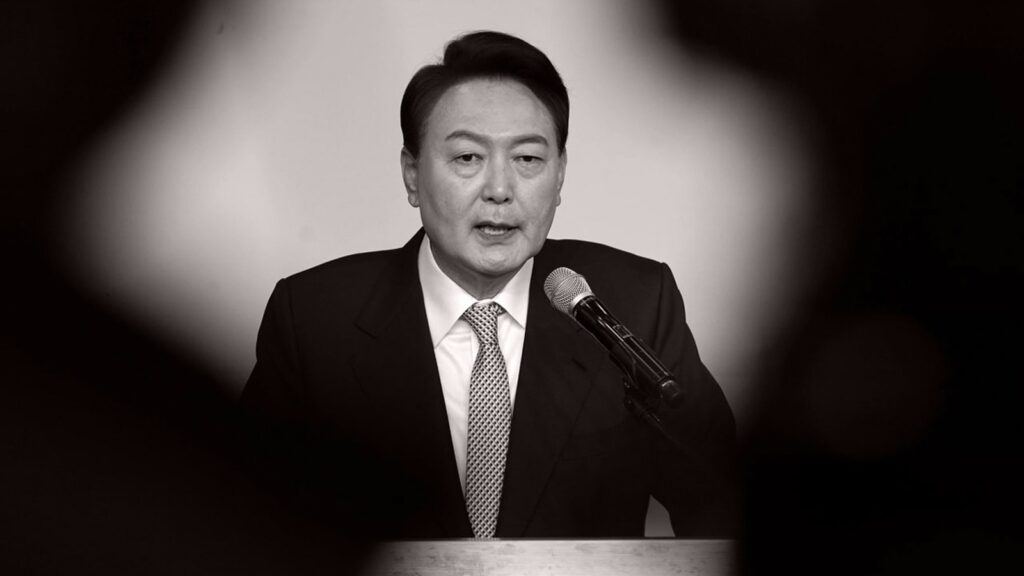South Korea is witnessing a political storm following an unprecedented raid on President Yoon Suk-yeol’s office by police investigating allegations of a secret martial law declaration. The investigation, which has plunged the nation into turmoil, centers on claims that the president and senior officials prepared plans for martial law to suppress escalating anti-government protests.
The protests, which have surged in recent weeks, were sparked by growing discontent over economic hardships and allegations of political corruption. Demonstrators, including students, labor unions, and civil society groups, have occupied key public spaces, demanding Yoon’s resignation. Opposition leaders have accused the president of undermining democracy by contemplating such an extreme measure against dissent.
Yoon’s administration has denied any wrongdoing, insisting the documents being investigated were hypothetical scenarios prepared as part of routine contingency planning. Critics, however, argue the plans go beyond mere preparation, describing them as a clear threat to democratic freedoms. The public outcry has intensified as opposition parties call for transparency and accountability.
The police raid has added fuel to an already volatile situation, with protesters and opposition figures warning of a potential constitutional crisis. International observers have also expressed concerns, urging the South Korean government to uphold democratic principles and avoid actions that could escalate tensions.
As the investigation unfolds, the situation remains fluid, with the possibility of further revelations that could reshape South Korea’s political landscape. The controversy has cast a shadow over Yoon’s administration, raising questions about its commitment to democratic governance amid growing public unrest.



